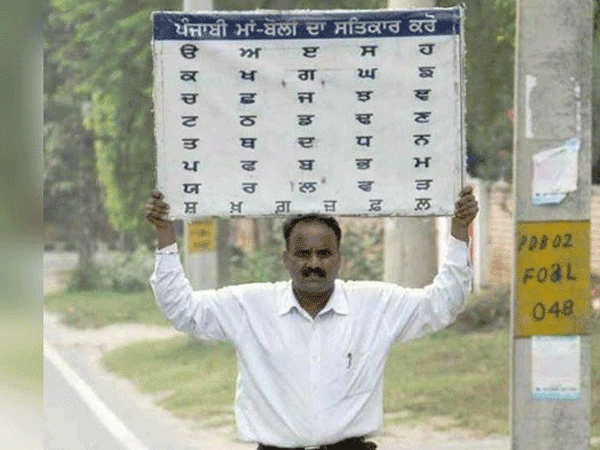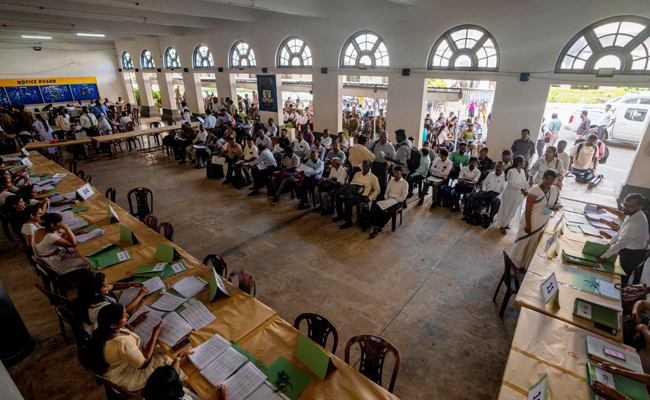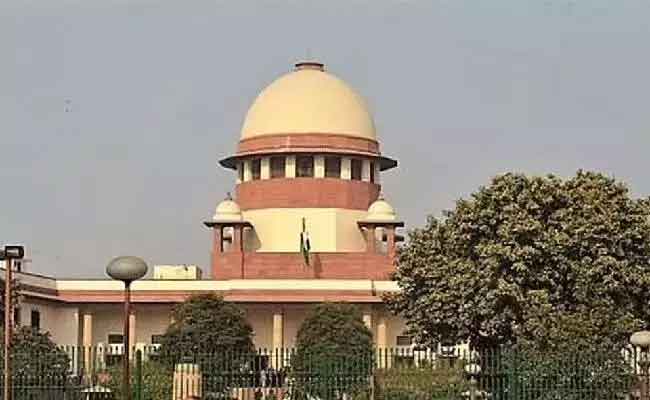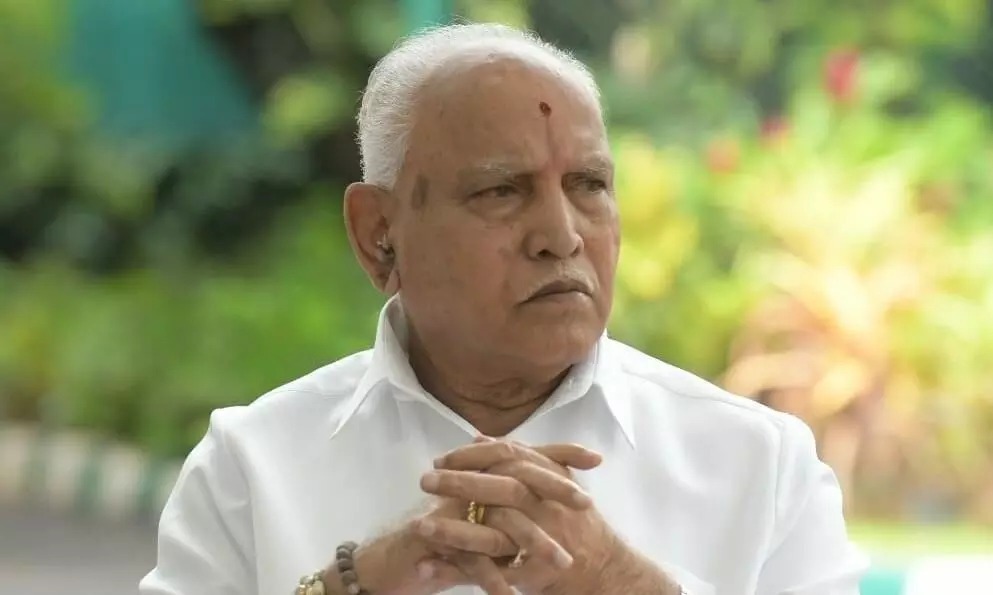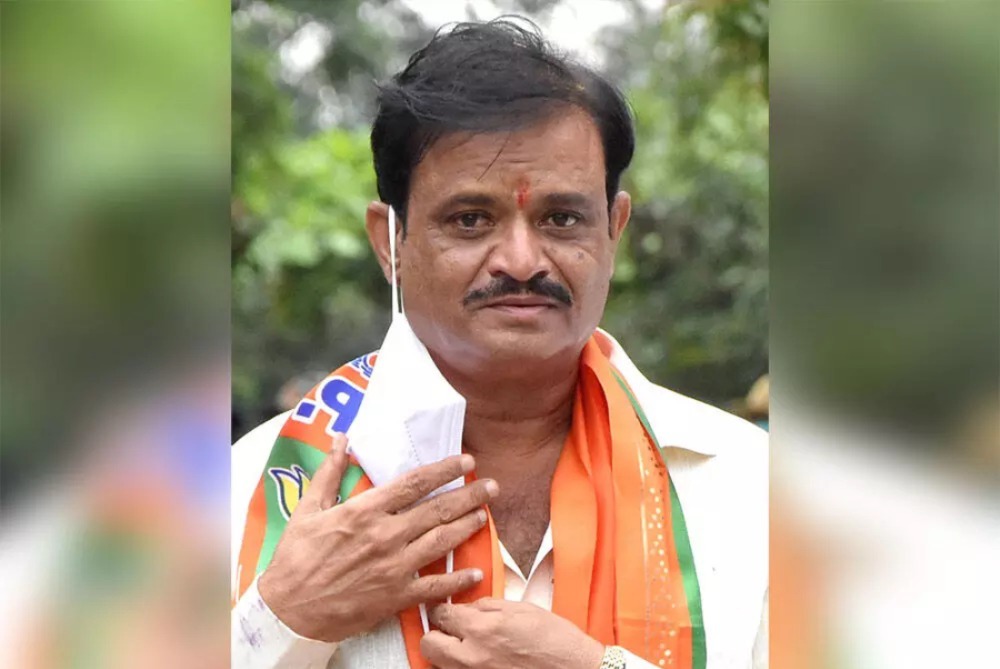Chandigarh (PTI): A 47-year-old professor has been going around Punjab and exhorting shopkeepers and business owners to put up signboards in Punjabi language. The man carrying out a crusade to promote Punjabi is neither a native of Punjab nor did he speak the language in the first three decades of his life.
He is Pandit Rao Dharennavar, a native of Bijapur district in Karnataka who moved to Chandigarh in 2003 to take up a teaching job.
He is currently an assistant professor at the Postgraduate Government College in Sector 46 of Chandigarh.
His latest effort towards the promotion of Punjabi follows the Punjab government's move of exhorting people to put up signboards on private and public buildings across the state in Punjabi language before International Mother Language Day, which falls on February 21.
Punjab Chief Minister Bhagwant Mann last November called for a mass movement for putting up signboards prominently in Punjabi along with other languages as a mark of respect to the mother tongue.
Dharennavar carries a placard of Punjabi alphabets to urge shopkeepers to write names of their shops in Punjabi language. "I tell them they should give due respect to their mother tongue and write names of their shops in Punjabi before any other language," said Dharennavar. He says people should feel proud to put up signboards in Punjabi.
He said he is getting tremendous response from shopkeepers who pledge to put up signboards in Punjabi.
"I have already visited Khanna, Ludhiana, Moga, Patiala, Rajpura, Mohali and Fatehgarh Sahib and will be visiting Gurdaspur, Pathankot, Ferozepur and other cities as well," he added.
Dharennavar, whose mother tongue is Kannada, said he has also written to private universities in Punjab to put up their signboards in Punjabi.
The assistant professor had earlier raised his voice against the glorification of gun culture, drugs, liquor and violence in Punjabi songs.
Dharennavar said he learnt Punjabi after he realised that his students were not proficient in English.
"I knew nothing about Punjabi when I came to Chandigarh. I was teaching in English. One day, I decided that I should learn Punjabi and teach students in their mother tongue so that they can understand the subject better," he said.
Dharennavar has translated Sikh religious book "Japji Sahib" into Kannada language and "vachanas" from Kannada into Punjabi.
He stressed that like in Karnataka, there should be a translation centre in Punjab to translate the rich Punjabi literature, poems, novels into other languages.
"The works of famous poets like Sant Ram Udasi, Pash and Shiv Kumar Batalvi should be translated into other languages like Kannada, Tamil so more and more people should know Punjab's literature," he said.
Dharennavar also gives Punjabi lessons to doctors at the Post Graduate Institute of Medical Education and Research who hail from southern states such as Karnataka and Tamil Nadu so that they can communicate with patients from Punjab in their local language. He has also written a book, "Sat Sri Akal Doctor Sahib", for the purpose.
Dharennavar has named his daughter after Mata Khivi, the wife of second Sikh Guru Angad Dev.
Let the Truth be known. If you read VB and like VB, please be a VB Supporter and Help us deliver the Truth to one and all.
Colombo (PTI): Millions of Sri Lankans are casting their votes on Saturday in the crucial presidential election -- the island nation's first major electoral exercise since its worst economic meltdown in 2022.
The election will be a test for incumbent President Ranil Wickremesinghe who has claimed credit for putting the country on the road to recovery.
Analysts said this election is the most keenly contested of all presidential elections since 1982 with 38 candidates in the fray.
Some 17 million people are eligible to vote at over 13,400 polling stations. Over 200,000 officials have been deployed to conduct the election which will be guarded by 63,000 police personnel.
Voting started at 7 am and will continue till 4 pm. Results are expected by Sunday. Buddhist Temple halls, schools and community centres have been converted into polling stations.
Officials estimated 30 per cent voter turnout by noon.
The Police Elections Bureau said that voting was proceeding peacefully, with no reports of violence so far.
"At 4 pm, we will try to start postal vote counting and at 6 pm we would like to start normal counting. All the election management systems are okay...Within two or three hours (after the counting of votes starts), we can display the results," said Colombo City Deputy Election Commissioner MKSKK Bandaramapa.
Wickremesinghe, 75, is seeking re-election for a five-year term as an independent candidate, riding on the success of his efforts to pull the country out of the economic crisis, which many experts hailed as one of the quickest recoveries in the world.
As Sri Lanka sank into economic collapse in 2022, a popular uprising led its then-president, Gotabaya Rajapaksa, to flee the country.
Wickremesinghe was appointed as president by Parliament a week after Rajapaksa was chased out of power.
"It's a turning point for Sri Lanka to get away from conventional politics which destroyed the country and the conventional economy which destroyed the country... and a new social system, and a political system," Wickremesinghe said after casting his vote in Colombo.
Under Wickremesinghe, the rupee has stabilised, inflation has slowed to near zero from over 70 per cent during the peak of the economic crisis, economic growth has turned to positive from contraction, and government revenue has jumped sharply after new taxes and an increase in value added tax (VAT).
The three-cornered electoral battle will see Wickremesinghe facing stiff competition from Anura Kumara Dissanayake, 56, of the National People's Power (NPP), and Sajith Premadasa, 57, of the Samagi Jana Balawegaya (SJB) and the main Opposition leader.
Though Wickremesinghe's recovery plan tied to rigid reforms linked to the International Monetary Fund (IMF) bailout was hardly popular, it has helped Sri Lanka recover from successive quarters of negative growth.
Sri Lanka's crisis has proven an opportunity for Dissanayake, who has seen a surge of support due to his pledge to change the island's "corrupt" political culture.
This time, the minority Tamil issue is not on the agenda of any of the three main contenders in this election. Instead, the nation's battered economy and its recovery have taken centre stage with all three front runners vowing to stick with the IMF bail-out reforms.
Dissanayake and Premadasa want to tinker with the IMF programme to give more economic relief to the public.
If no candidate receives more than 50 per cent of the votes, a second preferential vote count will be conducted.
Voters in Sri Lanka elect a single winner by ranking up to three candidates in order of preference. If a candidate receives an absolute majority, they will be declared the winner. If not, a second round of counting will commence, with second and third-choice votes then taken into account.
No election in Sri Lanka has ever progressed to the second round of counting, as single candidates have always emerged as clear winners based on first-preference votes. This year could be different.
Analysts fear that many voters would not be familiar with marking the second and third choices. This could lead to a higher number of rejected votes.

